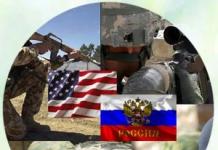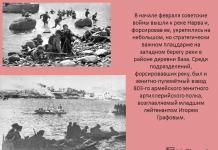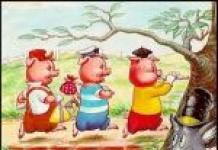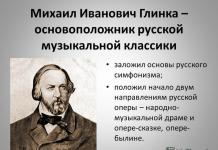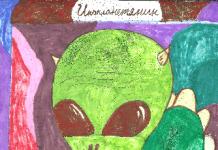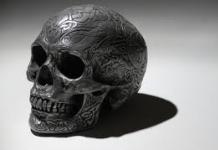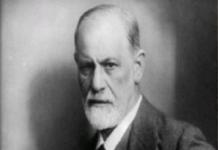In 1957, the Italian publishing house Feltrinelli published the first copies of Doctor Zhivago. In 1958, Boris Pasternak was awarded the Nobel Prize for this novel, which he was forced to publicly refuse. In Russia, the work was published only in 1988 (in the magazine “New World”), more than thirty years from the date of the first publication of “Doctor Zhivago”. The action of the novel takes place in that difficult time when Russia faced all the trials at once: the First World War and the Civil Wars, the abdication of the Tsar, the revolution. Boris Pasternak's novel about the fate of his generation, which became a witness, participant and victim of this madness. Reviews in the press The famous novel by the Nobel laureate has been republished several times and has long become a programmatic work of Russian literature. Here is an audio performance of the work performed by Honored Artist of Russia Alexei Borzunov. The text is reproduced without abbreviations: both parts of the masterpiece and the poem by Yuri Zhivago. Your leisure time Listening to a novel performed by an artist is not as easy as it might seem at first glance, because the listener will be required to fully participate, and this is affected by the specificity of the novel as a whole and Borzunov’s intonation features: he reads as if he were telling a story about himself, very trusting and very sincere, so you begin to listen, empathize, follow the course of history and in the end you become part of it. Those who are familiar with the plot of the novel should listen to the audio version, at least to compare their own attitude to certain events occurring in the novel with the emphasis placed by Alexey Borzunov. AIF “I want to know everything” © B. Pasternak (heirs) ©&? IP Vorobiev V.A. ©&? ID UNION
"Doctor Zhivago" - plot
The main character of the novel, Yuri Zhivago, appears before the reader as a little boy on the first pages of the work, describing the funeral of his mother: “They walked and walked and sang “Eternal Memory” ....” Yura is a descendant of a wealthy family that made a fortune in industrial, commercial and banking operations. The parents' marriage was not happy: the father abandoned the family before the death of the mother.
Orphaned Yura will be sheltered for a while by his uncle living in the south of Russia. Then numerous relatives and friends will send him to Moscow, where he will be accepted into the family of Alexander and Anna Gromeko as if he were his own.
Yuri's exceptionalism becomes obvious quite early - even as a young man, he shows himself as a talented poet. But at the same time he decides to follow in the footsteps of his adoptive father Alexander Gromeko and enters the medical department of the university, where he also proves himself as a talented doctor. The first love, and subsequently the wife of Yuri Zhivago, becomes the daughter of his benefactors, Tonya Gromeko.
Yuri and Tony had two children, but then fate separated them forever, and the doctor never saw his youngest daughter, who was born after the separation.
At the beginning of the novel, new faces constantly appear before the reader. All of them will be tied into a single ball by the further course of the story. One of them is Larisa, the slave of the elderly lawyer Komarovsky, who tries with all her might and cannot escape the captivity of his “patronage.” Lara has a childhood friend, Pavel Antipov, who will later become her husband, and Lara will see her salvation in him. Having gotten married, he and Antipov cannot find their happiness; Pavel leaves his family and goes to the front of the First World War. Subsequently, he would become a formidable revolutionary commissar, changing his surname to Strelnikov. At the end of the Civil War, he plans to reunite with his family, but this desire will never come true.
Fate brings Yuri Zhivago and Lara together in different ways during the First World War in the front-line settlement of Melyuzeyevo, where the main character of the work is called to war as a military doctor, and Antipova volunteers as a sister of mercy, trying to find her missing husband Pavel. Subsequently, the lives of Zhivago and Lara intersect again in the provincial Yuryatin-on-Rynva (a fictional Ural city, the prototype of which was Perm), where they vainly seek refuge from the revolution that destroys everything. Yuri and Larisa will meet and fall in love. But soon poverty, hunger and repression will separate both Doctor Zhivago’s family and Larina’s family. For a year and a half, Zhivago will disappear in Siberia, serving as a military doctor in captivity of the Red partisans. Having escaped, he will return on foot back to the Urals - to Yuryatin, where he will again meet with Lara. His wife Tonya, together with Yuri's children and father-in-law, while in Moscow, writes about imminent forced deportation abroad. Hoping to wait out the winter and the horrors of the Yuryatinsky Revolutionary Military Council, Yuri and Lara take refuge in the abandoned Varykino estate. Soon an unexpected guest comes to them - Komarovsky, who received an invitation to head the Ministry of Justice in the Far Eastern Republic, proclaimed on the territory of Transbaikalia and the Russian Far East. He persuades Yuri Andreevich to let Lara and her daughter go with him to the east, promising to transport them abroad. Yuri Andreevich agrees, realizing that he will never see them again.
Gradually he begins to go crazy from loneliness. Soon Lara's husband, Pavel Antipov (Strelnikov), comes to Varykino. Demoted and wandering across the expanses of Siberia, he tells Yuri Andreevich about his participation in the revolution, about Lenin, about the ideals of Soviet power, but, having learned from Yuri Andreevich that Lara has loved and loves him all this time, he understands how bitterly he was mistaken. Strelnikov commits suicide with a rifle shot. After Strelnikov's suicide, the doctor returns to Moscow in the hope of fighting for his future life. There he meets his last woman - Marina, the daughter of the former (back in Tsarist Russia) Zhivag janitor Markel. In a civil marriage with Marina, they have two girls. Yuri gradually sinks, abandons scientific and literary activities and, even realizing his fall, cannot do anything about it. One morning, on the way to work, he becomes ill on the tram and dies of a heart attack in the center of Moscow. His half-brother Evgraf and Lara, who will soon go missing soon after, come to say goodbye to him at his coffin.
Ahead will be the Second World War, and the Kursk Bulge, and the washerwoman Tanya, who will tell Yuri Andreevich’s gray-haired childhood friends - Innokenty Dudorov and Mikhail Gordon, who survived the Gulag, arrests and repressions of the late 30s, the story of their lives; It turns out that this is the illegitimate daughter of Yuri and Lara, and Yuri’s brother, Major General Evgraf Zhivago, will take her under his wing. He will also compile a collection of Yuri's works - a notebook that Dudorov and Gordon read in the last scene of the novel. The novel ends with 25 poems by Yuri Zhivago.
Story
In November 1957, the novel was first published in Italian in Milan by the Feltrinelli publishing house, “despite all the efforts of the Kremlin and the Italian Communist Party” (for this Feltrinelli was later expelled from the Communist Party).
On August 24, 1958, a “pirated” (without the consent of Feltrinelli) edition in Russian was released in Holland with a circulation of 500 copies.
The Russian edition, based on a manuscript not corrected by the author, was published in Milan in January 1959.
Awards
On October 23, 1958, Boris Pasternak was awarded the Nobel Prize with the wording “for significant achievements in modern lyric poetry, as well as for continuing the traditions of the great Russian epic novel.” The USSR authorities, led by N. S. Khrushchev, perceived this event with indignation, since they considered the novel anti-Soviet. Due to the persecution that unfolded in the USSR, Pasternak was forced to refuse to receive the prize. Only on December 9, 1989, the Nobel diploma and medal were awarded to the writer’s son, Evgeniy Pasternak, in Stockholm.
Criticism
V. V. Nabokov gave a negative assessment of the novel, which replaced Lolita in the list of bestsellers: “Doctor Zhivago is a pathetic thing, clumsy, banal and melodramatic, with hackneyed situations, voluptuous lawyers, implausible girls, romantic robbers and banal coincidences.”
Ivan Tolstoy, author of the book “The Laundered Novel”: Because this man overcame what all other writers in the Soviet Union could not overcome. For example, Andrei Sinyavsky sent his manuscripts to the West under the pseudonym Abram Terts. In the USSR in 1958 there was only one person who, raising his visor, said: “I am Boris Pasternak, I am the author of the novel Doctor Zhivago. And I want it to come out in the form in which it was created." And this man was awarded the Nobel Prize. I believe that this highest award was awarded to the most correct person on Earth at that time.
Reviews
Reviews of the book "Doctor Zhivago"
Please register or login to leave a review. Registration will take no more than 15 seconds.
Yulia Olegina
The Great Russian Epic Novel
I really enjoyed this novel! Moreover, Doctor Zhivago has become my favorite Russian novel!
Everyone knows that it was for this work that Pasternak was given the Nobel Prize with the wording “... for continuing the traditions of the great Russian epic novel.” And it is true. "Doctor Zhivago" is a new "War and Peace", only a century later. It shows different destinies, the impact of the First World War on the lives of people from different social strata. There is love that breaks through walls and love that is locked.
At first I didn't really like it. The description of the life of Yura Zhivago, Gordon, Lara in childhood is not very interesting and even a little “intrusive”. The plot jumps from one character to another, you don’t even have time to remember everyone, who, to whom and by whom. But from the moment Yura and Tonya’s promise to Tonya’s dying mother to love each other, the novel seems to get a “second wind.” Now the action unfolds rapidly, excitingly and most importantly - powerfully. You read avidly and can’t stop. Pasternak put a lot of effort into his narration style, every word of his is precise, you can neither delete nor add. Just the way it should be.
1. For everyone who loves classic Russian novels, such as "War and Peace", "Anna Karenina", "The Captain's Daughter", etc.
The beginning of the twentieth century became a period of severe trials for Russia: the First World War, revolution, and civil war destroyed millions of human destinies. The difficult relationship between man and the new era is described with piercing drama in Boris Leonidovich Pasternak’s novel “Doctor Zhivago”. Analyzing the work according to plan will allow you to better prepare not only for the literature lesson in grade 11, but also for the Unified State Exam.
Brief Analysis
Year of writing– 1945-1955.
History of creation– The novel was written over ten years, and brought the writer the Nobel Prize in Literature. However, the fate of the work was not at all easy: for a long time it was banned in his homeland, and real persecution unfolded against Pasternak.
Subject– The work fully reveals the problems of many pressing social issues, but the central theme is the contrast between man and history.
Composition– The composition of the work is very complex and is based on the interweaving of the destinies of the main characters. All the characters of the central characters are considered through the prism of the personality of Yuri Zhivago.
Genre– Multi-genre novel.
Direction– Realism.
History of creation
The novel was created over the course of a whole decade (1945-1955). And this is not surprising, since the work describes the most important era in the history of Russia and raises global problems of society.
The idea of writing such a grandiose novel first came to Boris Leonidovich in 17-18, but at that time he was not yet ready for such work. The writer began to implement his plan only in 1945, having spent 10 years of hard work on it.
In 1956, attempts were made to publish the novel in the Soviet Union, but they were unsuccessful. Pasternak was subjected to severe criticism for the anti-Soviet content of the novel, while the entire Western world literally applauded the Russian genius for his brilliant work. The worldwide recognition of Doctor Zhivago led to Boris Leonidovich being awarded the Nobel Prize, which he was forced to refuse at home. The novel was first published in the Soviet Union only in 1988, revealing Pasternak’s incredible literary gift to the general public.
It is interesting that Boris Leonidovich was not immediately able to decide on the name of his brainchild. One option was followed by another (“There will be no death”, “The candle was burning”, “Innokenty Dudorov”, “Boys and Girls”), until finally he settled on the final version - “Doctor Zhivago”.
Meaning of the name The novel consists in comparing the main character with the merciful and all-forgiving Christ - “You are the son of the living God.” It was no coincidence that the writer chose the Old Slavonic form of the adjective “living” - this is how the theme of sacrifice and resurrection runs like a red thread in the work.
Subject
Carrying out an analysis of the work in Doctor Zhivago, it is worth noting that the author revealed in it many important topics: life and death, searching for oneself in a renewed society, loyalty to one’s ideals, choice of life path, the fate of the Russian intelligentsia, honor and duty, love and mercy, resistance to the blows of fate.
However central theme The novel can be called the relationship between personality and era. The author is sure that a person should not sacrifice his own life to fight external circumstances, nor should he adapt to them, losing his true self. Main thought What Pasternak wants to convey in his work is the ability to remain oneself under any life conditions, no matter how difficult they may be.
Yuri Zhivago does not strive for luxury or satisfying his own ambitions - he simply lives and steadfastly endures all the difficulties that fate presents to him. No external circumstances are capable of breaking his spirit, losing his self-esteem, or changing the life principles that were formed in him in his youth.
The author attaches no less importance theme of love, which literally permeates the entire novel. Pasternak shows this strong feeling in all possible manifestations - love for a man or woman, for his family, profession, homeland.
Composition
The main feature of the novel's composition is the accumulation of random, but at the same time fateful meetings, all kinds of coincidences, coincidences, and unexpected turns of fate.
Already in the first chapters, the author skillfully weaves a complex plot knot in which the fates of the main characters are connected by invisible threads: Yuri Zhivago, Lara, Misha Gordon, Komarovsky and many others. At first it may seem that all the plot intricacies are overly far-fetched and complex, but over the course of the novel their true meaning and purpose becomes clear.
The composition of the novel is based on the acquaintance of the characters and the subsequent development of their relationships, and on the crossing of independently developing human destinies. The main characters, as if with an x-ray, are illuminated by the author, and all of them, one way or another, are focused on Yuri Zhivago.
An interesting compositional move by Pasternak can be called Zhivago’s notebook with his poems. It symbolizes a window into the infinity of existence. Having lost genuine interest in life and morally sunk to the very bottom, the main character dies, but his soul remains alive in beautiful poems.
Main characters
Genre
It is extremely difficult to accurately determine the genre of a novel, since it is a rich amalgamation of various genres. This work can safely be called autobiographical, since it reflects the main life milestones of Pasternak, who endowed the main character with many personal qualities.
The novel is also philosophical, as it pays a lot of attention to reflections on serious topics. The work is also of great interest from a historical point of view - it describes in detail, without embellishment, an entire historical layer in the history of a large country.
There is no denying the fact that Doctor Zhivago is a deeply lyrical novel in verse and prose, in which symbols, images, and metaphors occupy a lot of space.
The genre originality of the work is amazing: it surprisingly harmoniously intertwines many literary genres. This gives grounds to conclude that Doctor Zhivago belongs to a multi-genre novel.
It is also difficult to say which direction the novel belongs to, but, for the most part, it is a realistic work.
Work test
Rating analysis
Average rating: 3.9. Total ratings received: 132.
In the last months of the war, Boris Pasternak was often invited to Moscow University, the Polytechnic Museum and the House of Scientists, where he publicly read his poems. Therefore, he hoped that victory would have a significant impact on the political climate. But bitter disappointment awaited him: the attacks from the leaders of the Writers' Union continued. They could not forgive him for his ever-increasing popularity among foreign readers.
Starting work on a novel
The idea of the novel “Doctor Zhivago,” the creation of which began at the very beginning of Pasternak’s creative path, took a long time to form in the poet’s mind. But in the fall of 1945, having collected all the images, thoughts, intonations, he realized that he was ready to start working on the work. Moreover, the plot formed so clearly into a single line that the poet expected that it would take him only a few months to write the novel.
We can say that February 1946 marks the beginning of Pasternak’s work on the novel. After all, it was then that the poem “Hamlet” was written, opening the last chapter of “Doctor Zhivago”.
And in August the first chapter was already ready. He read it to close friends. But on August 14, the “same” Resolution of the Central Committee of the All-Union Communist Party of Bolsheviks on the magazines “Zvezda” and “Leningrad” was issued. Despite the fact that it had no direct relation to Pasternak (it affected the fates of A. Akhmatova and M. Zoshchenko), this event gave rise to a new round of struggle against “ideologically alien” authors. His situation worsened even more when rumors spread about Pasternak's possible nomination for the Nobel Prize.
Working on the first chapters
However, the author did not stop working. Pasternak was so captivated by the novel Doctor Zhivago that by the end of December two more chapters were completed. And the first two were copied into a clean copy, the sheets of which were sewn into a notebook.
It is known that the original name was different: “Boys and Girls.” This is how the author named his work in the first stages of creation. This was not only a description of the historical image of Russia in the first half of the 20th century, but also an expression of Pasternak’s subjective views on the place of man in the formation of the world, on art and politics, etc.

In the same 1946, the poet met the woman who became his last love. It was at the beginning of our acquaintance that she acted as a secretary. There were plenty of barriers between them. These are both past tragedies and current life circumstances. Ivinskaya’s first husband committed suicide, and the second was also dead. And Pasternak at that time was married for the second time, he had children.
Their love was against all odds. Many times they parted forever, but they could not live apart. Pasternak himself admitted that it was Olga’s features that he put into the image of the main character of the novel, Lara Guichard.

Break
A difficult financial situation forced Pasternak to interrupt work on the novel Doctor Zhivago. The history of creation continued the following year, 1948. And throughout 1947, the poet was engaged in translations, because he had to provide not only for himself, but also for all those whose care he voluntarily shouldered. This includes his own family, Nina Tabidze (the wife of a repressed Georgian poet), Ariadna and Anastasia Tsvetaeva (the daughter and sister of the poetess), and the widow of Andrei Bely, and, finally, the children of Olga Ivinskaya.
In the summer of 1948, the fourth chapter of the novel was completed. At the same time, the author gave the work its final title: “Doctor Zhivago.” The content has already been structured, the parts are also titled.
He would not complete the seventh chapter until the spring of 1952. In the fall it was printed in blank. Thus, work on the first book of the novel “Doctor Zhivago” was completed. The author suffered a myocardial infarction a few days later, was hospitalized and remained in the hospital for more than two months. There, being in an extremely difficult condition, he suddenly felt close to the Creator. This feeling also influenced the mood of his works.
After the death of Stalin and the execution of Beria, there was a noticeable revival of literary life. And Boris Pasternak perked up, especially since Olga Ivinskaya returned from the camps. In 1954, ten poems from an unfinished novel were published.
The end of Doctor Zhivago
In the fall of 1954, Pasternak and Ivinskaya resumed their close relationship. Olga spent the summer of 1955 not far from Peredelkino. There the poet rented a house for her. He couldn't completely abandon his family. Tormented by an unbearable feeling of guilt before his wife, he led a double life. From that time on, Olga was almost entirely involved in Pasternak’s financial, editorial and publishing affairs. Now Boris Leonidovich has more time for creativity. In July he was already working on the epilogue. The finishing touches were made at the end of 1955.

The further fate of the novel
Hoping for the liberalization of his views, Pasternak offers the manuscript of the novel to two publishing houses simultaneously. Also, for the purpose of familiarization, Boris Leonidovich gave the manuscript to a radio correspondent, Italian Sergio d'Angelo, who was also the literary agent of the publisher Giangiacomo Feltrinelli. Most likely, the poet knew this fact. Soon he received the expected news from an Italian publisher who offered to publish the novel. Pasternak accepted the offer, but was confident that his work (“Doctor Zhivago”) would be published faster in his native country. The interesting thing about the creation of the novel is that it is full of unexpected twists. None of the magazines gave an answer, and only in September Pasternak received an official refusal from the Novy Mir publishing house.
The poet did not give up and still believed in the success of the novel in his homeland. And indeed, Goslitizdat accepted the novel “Doctor Zhivago” for publication. But the event itself was delayed due to numerous amendments and deletions by editors. Unexpectedly, several poems and two chapters from Doctor Zhivago were published by the Polish magazine Opinie. This was the beginning of a scandal. Pasternak was put under pressure, forcing him to withdraw the manuscript from Feltrinelli. Boris Leonidovich sent a telegram to the Italian publisher, demanding the return of the text of the novel. However, behind the back of the Writers' Union, Pasternak simultaneously gives permission to Feltrinelli to publish the novel Doctor Zhivago. The author gave permission to preserve the original text.
Even the conversation between Pasternak’s main persecutor and the Italian did not change the decision to publish the novel. Also in other countries, the first copies of the work were already being prepared for release.
The West's reaction to the novel "Doctor Zhivago". The history of creation ended in tragedy
The reaction of Western critics was so resonant that they again wanted to nominate Pasternak for the Nobel Prize. The author was very encouraged by the attention of foreign readers and gladly answered letters coming from all over the world. On October 23, 1958, he received a telegram with the news that he had been awarded the Nobel Prize and an invitation to its presentation.

It is clear that the Writers' Union was against the trip, and Pasternak received direct instructions to refuse the prize. Pasternak did not accept this ultimatum, and, as a result, was expelled from the membership of the USSR Writers' Union.
Last lines
Boris Leonidovich was so mentally exhausted and brought to the point that he nevertheless changed his mind and refused the award. But this did not reduce the barrage of angry statements against him. The poet understood that this scandal could result in even more serious consequences for him. He was very worried. He expressed his feelings in one of his last poems. This poem was the answer to all the attacks and angry discussions. But at the same time, the last lines again spoke about the personal: about the break with Olga, whom he missed so much.
Soon Pasternak had a heart attack. And three weeks later, on May 30, 1960, Boris Leonidovich died.
The life and fate of Pasternak is one of the most amazing in the history of our literature, with its tragedy and heroism.
B. Pasternak, “Doctor Zhivago”: summary
The novel describes the events of 1903-1929. The main character works as a doctor. This is a person with very creative views and an interesting character. Life's difficulties affected him as a child, when his father first left the family and subsequently committed suicide, and at the age of 11 he lost his mother. He, in fact, is Doctor Zhivago. Yuri Zhivago did not live a very long, but very eventful life. There were several women in his life, but only one love. Her name was Lara Guichard. Fate gave them very little time to be together. Difficult times, obligations to other people, life circumstances - everything was against their love. Yuri dies in 1929 from a heart attack. But later his stepbrother finds his notes and poems, which form the final part of the novel.

The plot lines of the novel were largely influenced by the difficulty with which Boris Pasternak wrote his work. "Doctor Zhivago", a brief summary of which does not give the full impression of this great work, was very warmly received in the West and so cruelly rejected in the Soviet Union. Therefore, every Russian needs to read this magnificent novel and feel the spirit of a real Russian person.
B. Pasternak's novel "Doctor Zhivago" is often called one of the most complex works in the writer's work. This concerns the features of depicting real events (the first and October revolutions, world and civil wars), understanding its ideas, characteristics of the characters, the name of the main one is Doctor Zhivago.
The role of the Russian intelligentsia in the events of the early 20th century, however, is as difficult as its fate.
Creative history
The first idea of the novel dates back to the age of 17-18, but Pasternak began serious work only almost two decades later. 1955 marked the end of the novel, followed by publication in Italy and the award of the Nobel Prize, which the Soviet authorities forced the disgraced writer to refuse. And only in 1988 did the novel first see the light in its homeland.
The title of the novel changed several times: “The Candle Was Burning” - the title of one of the poems of the main character, “There Will Be No Death”, “Innokenty Dudorov”. As a reflection of one of the aspects of the author's plan - “Boys and Girls”. They appear on the first pages of the novel, grow up, and experience through themselves the events of which they are witnesses and participants. Teenage perception of the world continues into adulthood, as evidenced by the thoughts, actions of the characters and their analysis.
Doctor Zhivago - Pasternak was attentive to the choice of name - this is the name of the main character. First there was Patrick Zhivult. Yuri is most likely St. George the Victorious. The surname Zhivago is most often associated with the image of Christ: “You are the son of the living God (genitive case form in the Old Russian language).” In this regard, the idea of sacrifice and resurrection arises in the novel, running like a red thread through the entire work.

Image of Zhivago
The writer focuses on historical events of the first and second decades of the 20th century and their analysis. Doctor Zhivago - Pasternak portrays his entire life - in 1903 loses his mother and finds himself under the tutelage of his uncle. While they are traveling to Moscow, the boy’s father, who had left his family even earlier, also dies. Next to his uncle, Yura lives in an atmosphere of freedom and the absence of any prejudices. He studies, grows up, marries a girl he has known since childhood, gets a job and begins to do the job he loves. And he also awakens an interest in poetry - he begins to write poetry - and philosophy. And suddenly the usual and established life collapses. The year is 1914, and even more terrible events follow. The reader sees them through the prism of the main character's views and their analysis.
Doctor Zhivago, just like his comrades, reacts vividly to everything that happens. He goes to the front, where many things seem meaningless and unnecessary to him. Upon returning, he witnesses how power passes to the Bolsheviks. At first, the hero perceives everything with delight: in his mind, the revolution is a “magnificent surgery” that symbolizes life itself, unpredictable and spontaneous. However, with time comes a rethinking of what happened. You cannot make people happy without their desire, this is criminal and, at the very least, absurd - this is the conclusion that Doctor Zhivago comes to. Analysis of the work leads to the idea that a person, whether he wants it or not, finds himself drawn into Pasternak’s hero in this case practically goes with the flow, not openly protesting, but also not unconditionally accepting the new government. This is what was most often reproached to the author.

During the civil war, Yuri Zhivago ends up in a partisan detachment, from where he escapes, returns to Moscow, and tries to live under the new government. But he cannot work as before - this would mean adapting to the conditions that have arisen, and this is contrary to his nature. What remains is creativity, in which the main thing is the proclamation of the eternity of life. This will be shown by the hero’s poems and their analysis.
Doctor Zhivago, thus, expresses the position of that part of the intelligentsia that was wary of the revolution that happened in 1917 as a way to artificially establish new orders, initially alien to any humanistic idea.
Death of a Hero
Suffocating in new conditions that his essence does not accept, Zhivago gradually loses interest in life and mental strength, in the opinion of many, even degenerates. Death overtakes him unexpectedly: in a stuffy tram, from which Yuri, who feels unwell, has no way to get out. But the hero does not disappear from the pages of the novel: he continues to live in his poems, as evidenced by their analysis. Doctor Zhivago and his soul gain immortality thanks to the great power of art.

Symbols in the novel
The work has a ring composition: it begins with a scene describing the mother’s funeral, and ends with his death. Thus, the pages narrate the fate of an entire generation, represented mainly by Yuri Zhivago, and emphasize the uniqueness of human life in general. The appearance of a candle (for example, the young hero sees it in the window), personifying life, is symbolic. Or blizzards and snowfall as a harbinger of adversity and death.
There are also symbolic images in the hero’s poetic diary, for example, in the poem “Fairy Tale”. Here the “corpse of a dragon” - the victim of a duel with a serpent rider - personifies a fairy-tale dream that has turned into eternity, as imperishable as the soul of the author himself.

Poetry collection
“The Poems of Yuri Zhivago” - 25 in total - were written by Pasternak while working on the novel and form one whole with it. At the center of them is a man caught in the wheel of history and facing a difficult moral choice.
The cycle opens with Hamlet. Doctor Zhivago - analysis shows that the poem is a reflection of his inner world - turns to the Almighty with a request to alleviate the fate assigned to him. But not because he is afraid - the hero is ready to fight for freedom in the surrounding kingdom of cruelty and violence. This work is about Shakespeare's famous hero facing a difficult fate and the cruel fate of Jesus. But the main thing is a poem about a person who does not tolerate evil and violence and perceives what is happening around as a tragedy.
The poetic entries in the diary correspond to various stages of Zhivago’s life and mental experiences. For example, an analysis of Doctor Zhivago’s poem “Winter Night”. The antithesis on which the work is built helps to show the confusion and mental anguish of the lyrical hero, trying to determine what is good and evil. The hostile world in his mind is destroyed thanks to the warmth and light of a burning candle, symbolizing the quivering fire of love and home comfort.

The meaning of the novel
One day “... waking up, we... will not regain our lost memory” - this thought of B. Pasternak, expressed on the pages of the novel, sounds like a warning and a prophecy. The coup that took place, accompanied by bloodshed and cruelty, caused the loss of the commandments of humanism. This is confirmed by subsequent events in the country and their analysis. “Doctor Zhivago” is different in that Boris Pasternak gives his understanding of history without imposing it on the reader. As a result, everyone gets the opportunity to see events in their own way and, as it were, becomes its co-author.

The meaning of the epilogue
The description of the death of the main character is not the end. The novel's action briefly shifts to the early forties, when Zhivago's half-brother meets Tatyana, the daughter of Yuri and Lara, who works as a nurse, in the war. She, unfortunately, does not possess any of the spiritual qualities that were characteristic of her parents, as an analysis of the episode shows. "Doctor Zhivago", thus, identifies the problem of spiritual and moral impoverishment of society as a result of the changes that have occurred in the country, which is opposed by the immortality of the hero in his poetic diary - the final part of the work.
The twentieth century, with its tragic events, became a time of severe trials for many people. It was especially difficult for representatives of the intelligentsia, who saw the horror of the situation, but could not change anything. It is no coincidence that the twentieth century was called the “wolfhound century.”
One of the brightest works that reveals a person’s relationship with the era was the novel by Boris Leonidovich Pasternak "Doctor Zhivago". Written in 1955, it was published in its homeland only in 1988, 33 years later. Why did the work provoke such a reaction from the authorities? Outwardly, the plot is quite traditional for the beginning of the twentieth century: we are talking about the fate of man in the era of revolutionary transformations. The events of the novel are shown through the prism of the perception of the main character, so the plot is primarily connected with the fate of the young doctor Yuri Zhivago.
The fate of a person, according to Pasternak, is not directly related to the historical era in which he has to live. Main character The novel did not struggle with circumstances, but did not adapt to them, remaining an individual under any conditions. Zhivago is a broad specialist, a therapist, and more of a diagnostician than an attending physician. He is able to predict and make an accurate diagnosis, but does not seek to correct or treat, that is, to interfere with the natural course of things. At the same time, such a peculiar fatalism of Zhivago does not prevent him from making the necessary moral choice, in which the true freedom of man is manifested.
From the very beginning of the novel, there are boys - Yura Zhivago, Misha Gordon, Nika Dudorov and girls - Nadya, Tonya. Only Lara Guichard - "a girl from another circle". The author wanted to call the novel "Boys and Girls". And although the events of the novel unfold around the grown-up heroes, the teenage perception remains in Yuri himself, and in Lara, and even in Antipov, who has become a different person. After all, everything that happens during the Civil War will become a game for him.
But life is not a game, it is a reality that interfered with the fate of the main characters. The novel begins with the suicide of Yuri's father, a bankrupt "rich, good-natured and naughty" Zhivago, and he was pushed to take this terrible step by none other than lawyer Komarovsky, who later played a tragic role in Lara’s fate.
At the age of 11, becoming an orphan, Zhivago ended up in the family of Professor Gromeko, who had a daughter, Tonya, the same age as Yuri. “They have such a triumviate there: Yura, his friend and classmate, high school student Gordon, and the owners’ daughter Tonya Gromeko. This triple union has read “The Meaning of Love” and “The Kreutzer Sonata” and is obsessed with preaching chastity.”.
In the spring of 1912, all the young people completed their higher education: Yura became a doctor, Tonya became a lawyer, and Misha became a philologist. But on the eve of this year, Tonina’s dying mother begged them to get married. Having grown up together and loving each other like brother and sister, the young people fulfilled the will of the deceased Anna Ivanovna - they got married after receiving their diploma. But just before the death of Tonina’s mother, at the Sventitsky Christmas tree, Yuri saw Lara Guichard shooting at her mother’s lover, lawyer Komarovsky, who had seduced her. The young man was shocked by the beauty and proud posture of this girl, not imagining that their destinies would unite in the future.
Indeed, a “tangle of fate” will happen more than once in their lives. For example, having become a doctor, Yuri will go to the First World War, and Lara, having married Pavel Antipov and going with him on assignment to the Ural city of Yuryatin, will then look for him, who went missing, at the front, and will meet Zhivago there.
In general, the hero greets all the events of history with enthusiasm. For example, as a doctor he admires "great surgery" October Revolution, which can “to cut out all the stinking ulcers of society at once”. However, the hero soon realizes that instead of emancipation, the Soviet government put a person in a rigid framework, imposing at the same time its understanding of freedom and happiness. Such interference in human life frightens Yuri Zhivago, and he decides to go with his family away from the epicenter of historical events - to the former estate of Gromeko Varykino in the vicinity of Yuryatin.
It was there, in Yuryatino, that Yura and Lara would meet again and fall in love. Yuri rushes between his two beloved women, but history, in the person of Comrade Lesnykh, frees him from his dual position: the partisans need a doctor, and they forcibly take Doctor Zhivago into their squad. But even there, in conditions of captivity, Zhivago reserves the right to choose: he is given a rifle to shoot at enemies, and he shoots at a tree, he must treat the partisans, and he nurses the wounded Kolchak soldier Seryozha Rantsevich.
There is another hero in the novel who also made his choice. This is Lara's husband, Pasha Antipov, who changed his last name to Strelnikov, who decided to start life from scratch. He tries to make history in his own way, sacrificing not only his family (wife Lara and daughter Katenka), but also his destiny. As a result, finding himself a victim of both history and his feelings, he makes a last attempt to resist a fate that is unacceptable to him - he shoots himself in the forehead.
Zhivago commits a truly strong-willed act - he escapes from the partisan camp and, exhausted, half-dead, returns to Yuryatin to Lara. And his wife, along with his father and children, emigrated to Europe during this time, and contact with them was severed. But the trials for Yuri did not end there. Realizing that Lara will be persecuted, he persuades her to leave with Komarovsky, who can ensure her safety.
Left alone, Zhivago returns to Moscow, where he ceases to take care of himself, outwardly completely declines, spiritually degenerates and dies in the prime of life, essentially alone. But such external metamorphoses indicate a change in the inner world. He creates, and the result of his creativity is the last chapter of the novel “Poems of Yuri Zhivago.”
Thus, the novel "Doctor Zhivago" becomes spiritual biography its author, because the fate of Yuri Zhivago is woven into the fabric of the life and spiritual path of his creator.


